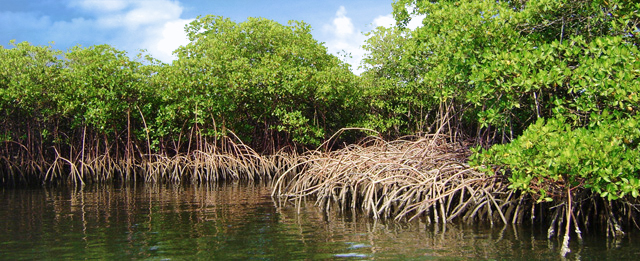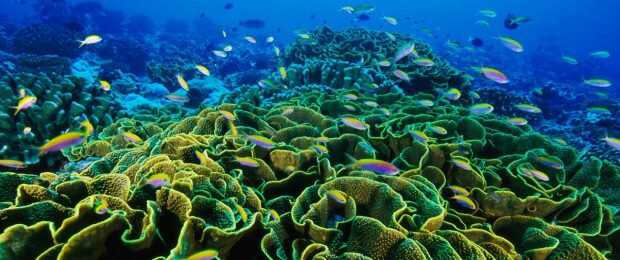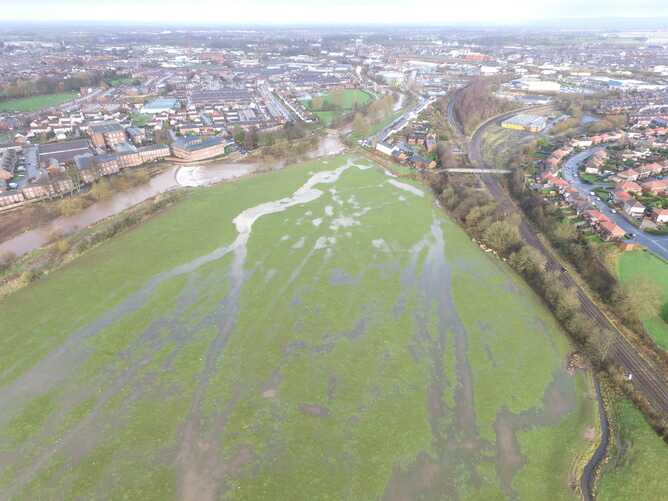Mangroves

Mangroves are salt-water tolerant shrubs and trees that grow in shallow, tropical coastal waters. Their roots bind the shoreline and each kilometre of mangrove forest can reduce a storm surge by 50cm, blunting the impact of cyclones/hurricanes and tsunamis. Every hectare of mangrove and coastal marsh is worth up to $15,161 a year in disaster-related services. Mangroves also store carbon dioxide, helping to fight climate change.
Coral Reefs

Coral reefs are solid structures found in shallow, tropical waters and are built by living colonies of tiny coral polyps. Home to a quarter of all marine species, and providers of eco-tourism livelihoods, coral reefs also act as offshore wave barriers.
This protection from extreme events is worth up to $33,556 per hectare every year. It’s also estimated that spending $1 million a year on restoring reefs at the Folkestone Marine Park on the west coast of Barbados could lower annual storm losses there by $20 million.
Rivers and Flood Plains

Over time, rivers and streams meander to create wide, silted floodplains. If these are left intact – with their related inland lakes and swamps – they can act as a giant reservoir. During sudden floods, they can spread and store flood water over a wide area, reducing damage downstream.
Inland Deltas
When rivers flow into a wide, flat inland lake without draining into the ocean, an inland delta is formed. In extremely arid areas, these seasonal flows are a strong natural safeguard against drought. The Okavango Delta in Botswana is perhaps the most famous, flooding an area the size of Belgium, providing a home for 200,000 large mammals and 400 bird species during that region’s parched winter season.
Peatlands
Peatlands are water-saturated lands containing decomposed plant material up to 30 meters deep that has accumulated over time. They cover 3% of the earth’s land surface. Key fact: peatlands store more than twice as much carbon as all of the world’s forests combined, so they play an important role in mitigating some effects of climate change.
